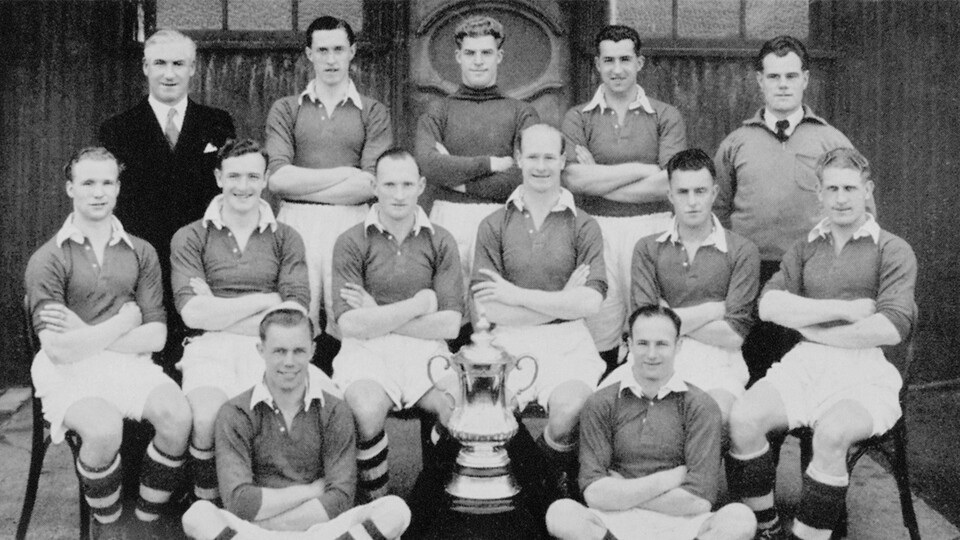1946-1982: Post-war
1946: First FA Cup final - defeat to Derby
Jimmy Seed led his side to a third Wembley appearance in four years as Charlton reached the FA Cup final for the first time.
The Addicks dispatched Fulham, Wolverhampton Wanderers, Preston North End, Brentford and Bolton Wanderers to make it to the final of the world’s most famous cup competition, but fell at the final hurdle against Derby County, losing 4-1 after extra-time.

Charlton made history that year by becoming the only team to this day to have reached an FA Cup final despite losing on the road to Wembley. In 1945/46, ties were played over two legs until the semi-final stage. Having beaten Fulham 3-1 at The Valley in round three, the second leg saw the Cottagers win 2-1, but Seed’s men advanced to the fourth round 4-3 on aggregate.
1947: FA Cup victory
After the disappointment of defeat in the FA Cup final at the hands of Derby County a year earlier, Charlton had the chance to make amends with a second consecutive appearance in the final of the world’s most famous cup competition, becoming the first London club to achieve the feat.
Rochdale, West Bromwich Albion, Blackburn Rovers, Preston North End and Newcastle United were all put to the sword during the road to Wembley, with Burnley lying in wait at the national stadium.
There were five survivors in Jimmy Seed’s lineup from the 1946 final, with Sam Bartram, Jack Shreeve, Bert Johnson, Don Welsh and Chris Duffy all getting a second chance of glory, while there was redemption for Peter Croker, who had missed out at Wembley 12 months earlier with a broken leg he had suffered just 10 days before the big day.
A crowd just shy of 100,000 were packed in beneath the famous old twin towers as Welsh led his players out alongside their counterparts from second-division Burnley. Referee Jim Wiltshire, sensing the tension of the occasion, felt no need to hang around, blowing his whistle to get the match under way a full five minutes before its scheduled 3pm kick-off.
That tension, perhaps, translated into action with one reporter describing the play as “unexciting”, while another said: “this must be one the dullest games ever on Wembley’s great arena.”
Indeed, one of the highlights of the game was when, for the second successive year, the ball burst while in play (this was later put down to the poor quality of leather available following the Second World War.)
Chances were at a premium, but it was Charlton who looked the more likely in front of goal. Welsh tested Clarets stopper George Strong with a shot from a good position inside the penalty area, but with no goals after 90 minutes, Seed’s men were heading for extra-time, just as they did in the previous final.
With the action remaining tight, it looked as if the match could be heading for a replay, before Charlton sealed their moment of glory in the 114th minute.
When a right-wing cross was headed away by a Burnley defender, it only fell as far as Duffy who lay in wait before slamming home a first-time volley from 12 yards to bring the cup to south London.
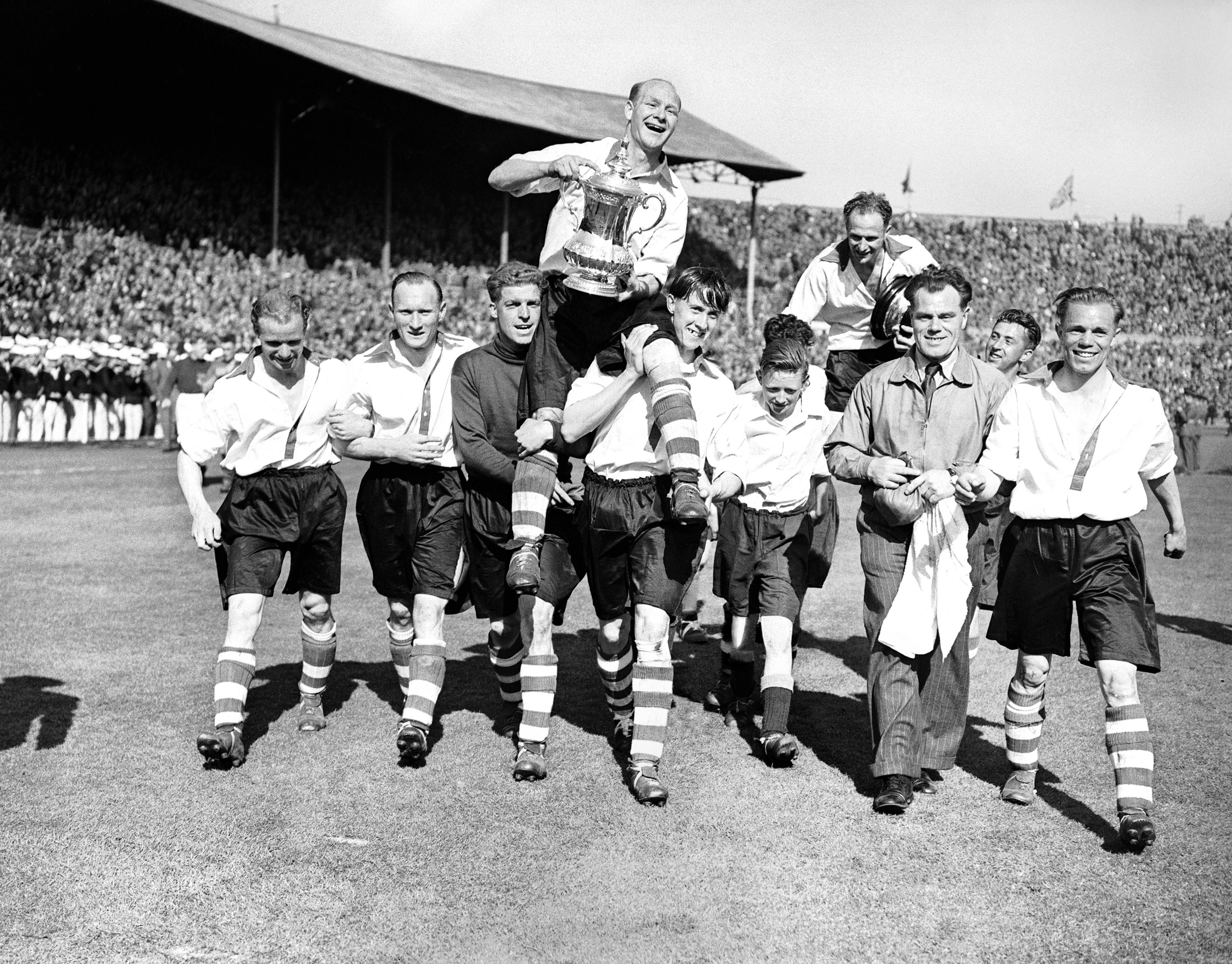
1950: Top-flight survival
Charlton flirted with relegation in the early 1950s, surviving on the final day of the 1949/50 season with a 2-1 victory away at Derby County.
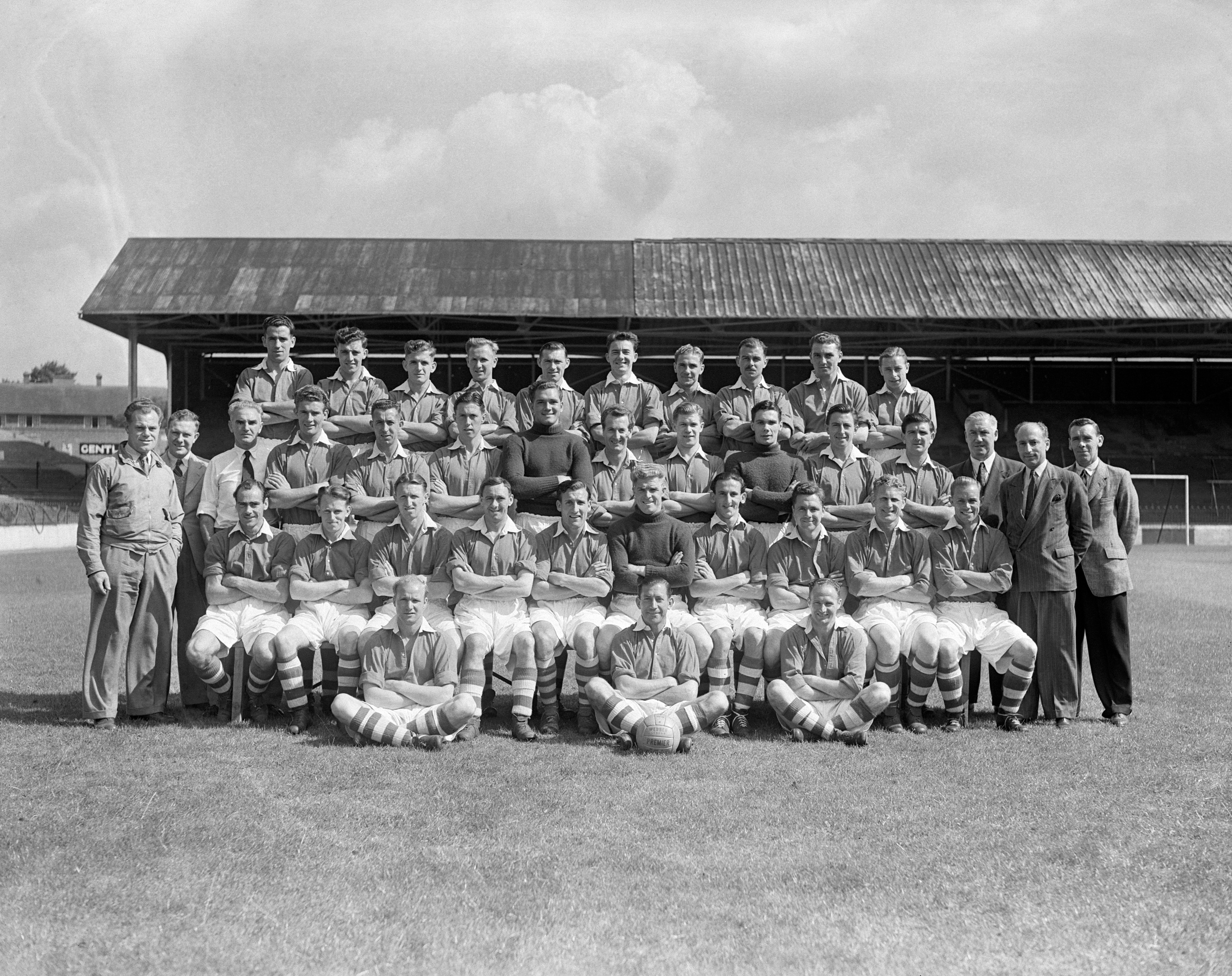
The following season, the Addicks had Swedish amateur Hans Jeppson to thank for his nine goals in 11 games which helped ensure top-flight safety.
1951: John Hewie's debut
South African-born defender John Hewie made his debut for Charlton. The full-back played in every position during his 15-year career at The Valley, including in goal on four occasions.
Hewie is third in the list of the Addicks' all-time appearance makers having represented the club on 530 occasions between 1951 and 1966, scoring 38 times.
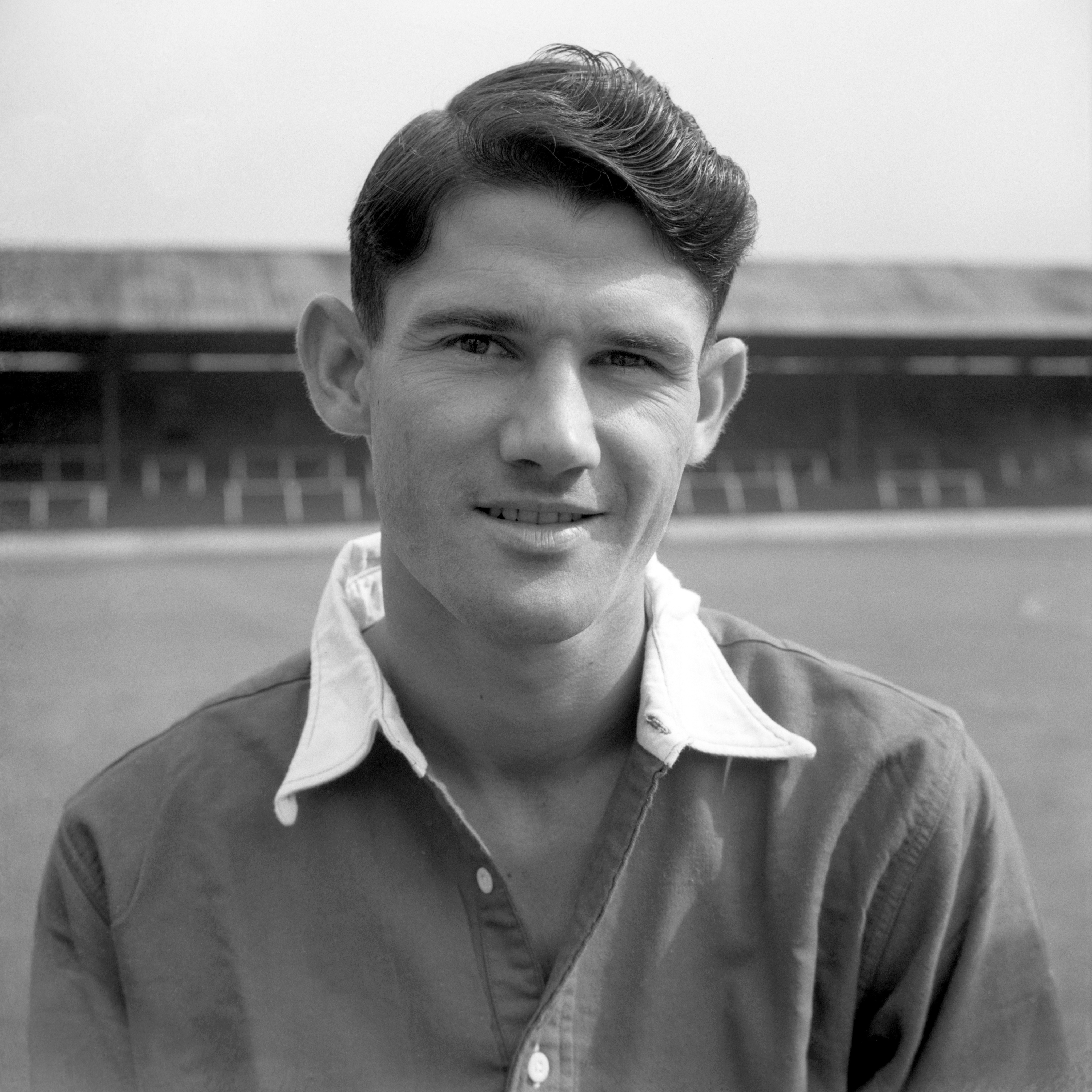
Although born in South Africa, he became a Scotland international due to his parentage and earned 19 caps having made his debut in a 1-1 draw with England at Hampden Park in 1956, and represented his country at the 1958 World Cup finals in Sweden.
1953: Record victory
Charlton earned a club-record 8-1 victory over Middlesbrough on September 12th, 1953.
Brilliant South African forward Eddie Firmani claimed the plaudits on the day at The Valley, netting a hat-trick to add to a brace apiece from Sid O’Linn and Gordon Hurst, while fellow countryman Stuart Leary also found the net.
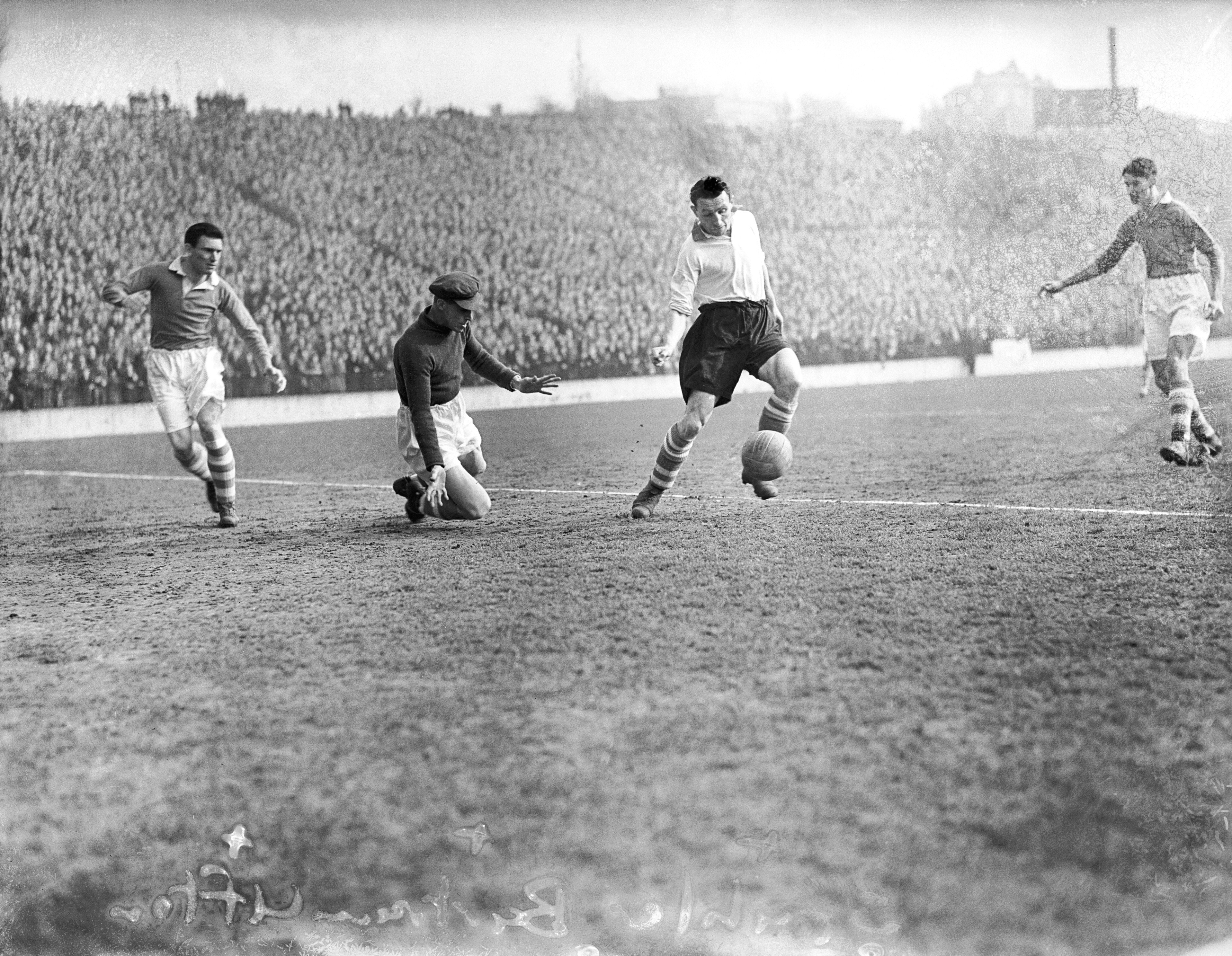
After impressing in the First Division for four seasons between 1951 and 1955, Firmani returned to The Valley after an eight-year absence with crowds flocking to SE7 to see his magic. In total, he netted 89 goals in 177 appearances.
1957: The greatest comeback of all time
After a 21-year stay in First Division, Charlton were eventually relegated at the end of the 1956/57 season, seven months after Jimmy Seed had beeb sacked in September 1956.
During the first season back in the Second Division, on December 21st, 1957, the Addicks staged one of the greatest comebacks in football history in a 13-goal thriller against Bill Shankley’s Huddersfield Town at The Valley.
Having been 5-1 down with just 28 minutes remaining, and down to 10 men after Derek Ufton left the action early on with a dislocated shoulder, Charlton scrapped back to earn an incredible 7-6 victory.
Johnny Summers netted an impressive five goals during the extraordinary encounter in SE7, while ‘Buck’ Ryan scored the other two.
1962: The great escape
The 60s proved to be a somewhat difficult decade for Charlton, with mid-table mediocrity in the Second Division leading to dwindling crowds.
The 1961/62 season saw floodlights installed at The Valley for the first time, while Manager Jimmy Trotter was dismissed halfway through the season after a torrid start to the campaign.
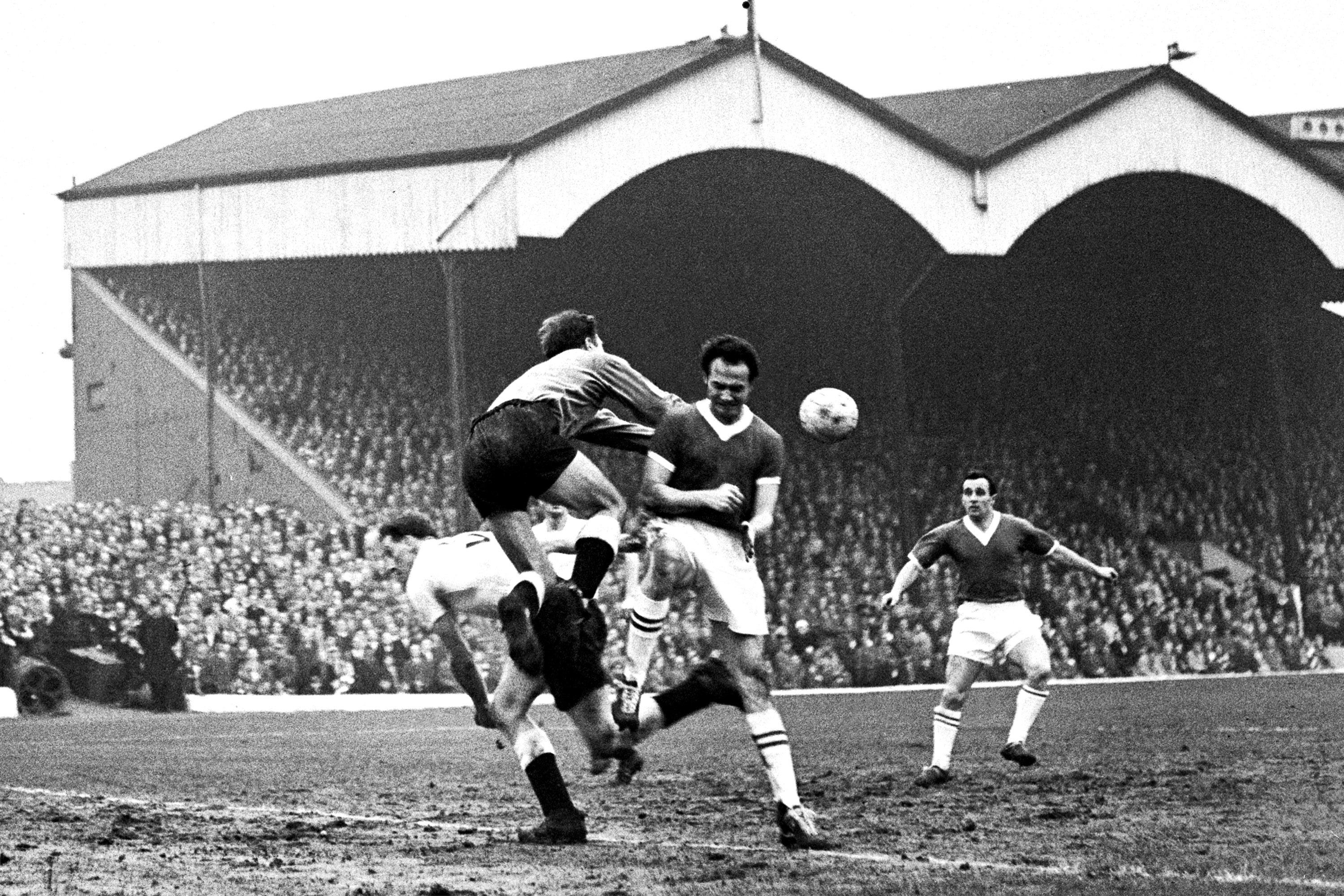
Seemingly dead and buried with just nine points from 19 matches, Frank Hill was brought in to replace him and his side went on a terrific run of form, inspired by Stuart Leary, to rise up the table and finish safely in 15th.
1963: Continuing to survive
Charlton were again embroiled in a relegation battle, surviving in dramatic fashion on the final day of the 1962/63 season.
Away at Walsall, the second-bottom Addicks needed a victory to stay up, while the third-from-bottom hosts needed a point to survive.
Keith Peacock and Mike Kenning scored the all-important goals to earn a 2-1 victory at Fellows Park to retain their second-tier status.
1965: Keith Peacock makes history
Keith Peacock made history when he became the first ever substitute in the Football League.
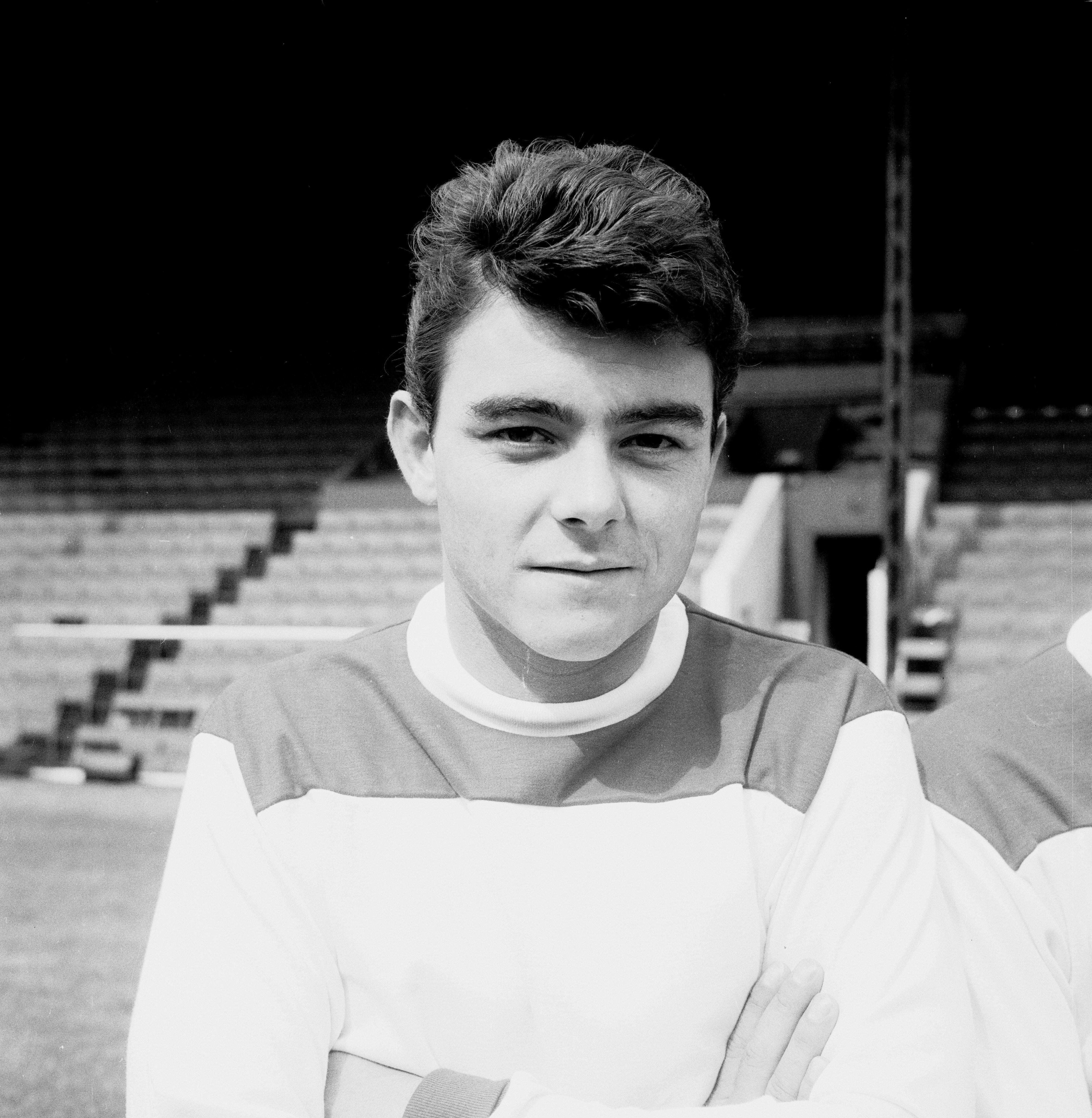
After goalkeeper Mike Rose was injured 11 minutes into the opening-day clash with Bolton Wanderers at Burnden Park, Manager Bob Stokoe called on Peacock to enter the fray to secure his place in history, while John Hewie stood in between the sticks.
The Addicks ultimately lost 4-2 on the day.
1968: Eddie Firmani becomes boss
Eddie Firmani was appointed Charlton Manager in the summer of 1967. A 15th-place finish in his first season was followed by a memorable 1968/69 season.
Dubbed by many as the Addicks’ ‘team of the 60s’, Firmani’s exciting side narrowly missed out on promotion to the First Division, finishing third in the second tier behind Brian Clough’s Derby County and Crystal Palace.
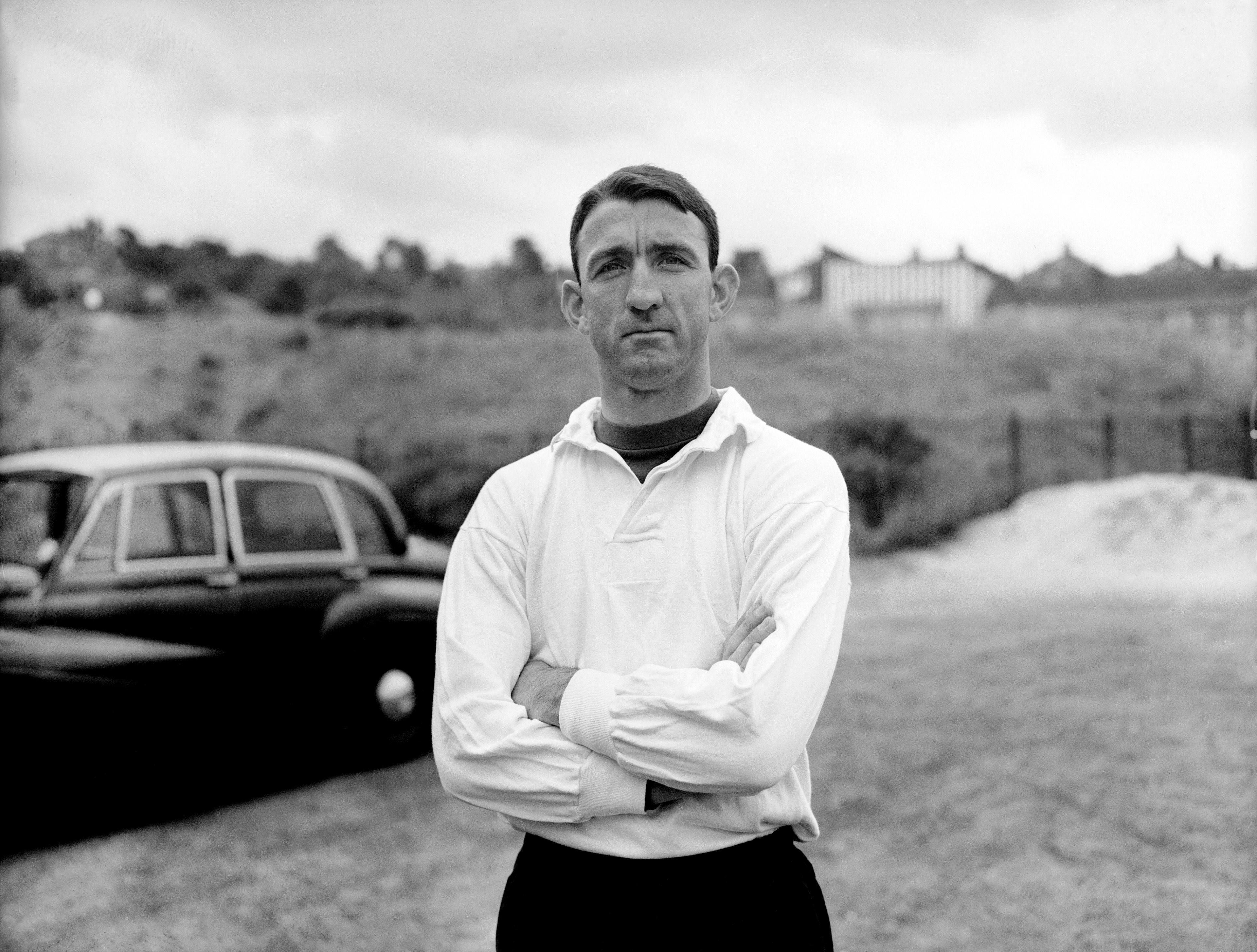
Matt Tees and Ray Treacy formed an excellent pairing up front, bagging 25 goals between them that season.
1972: Relegation to the third tier
Eddie Firmani was sacked in March 1970, replaced by Theo Foley and, after a number of frustrating years in the Second Division, Charlton were relegated to the third tier at the end of the 1971/72 season for the first time since 1935.
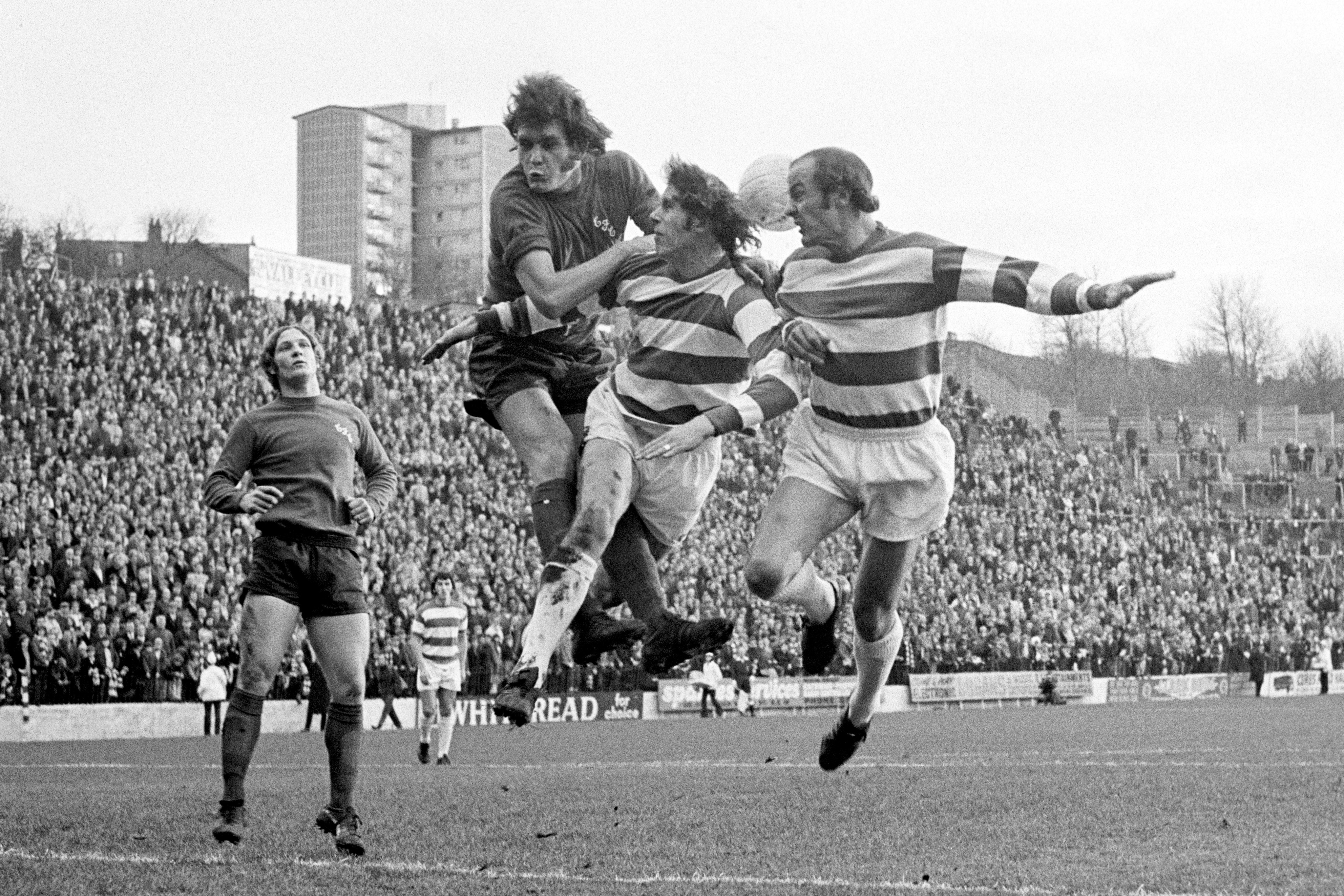
1973: Derek Hales signs for Charlton
Derek Hales arrived at The Valley from Luton Town and went on to etch his name into the club’s history books.
An instant Valley hero, he terrorised defences in the red of Charlton and went on to become the club’s record goalscorer in all competitions, netting 168 goals in 368 games during two spells at The Valley.
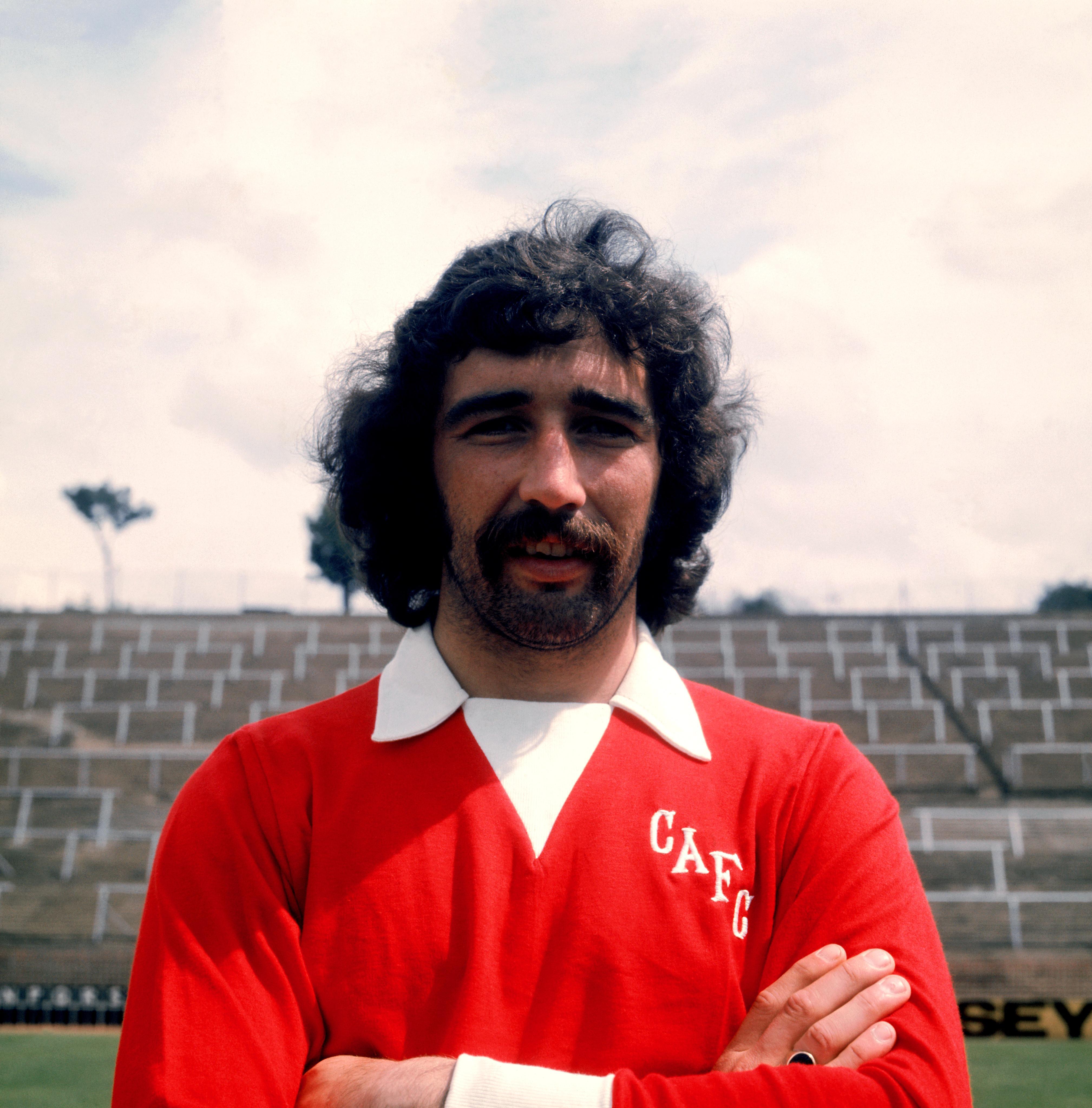
1975: Promoted to Second Division
Charlton began to rebuild in the Third Division. With Keith Peacock staying loyal to the club following relegation, he was joined by Mike Flanagan in 1971, Colin Powell in 1972 and Derek Hales in 1973 and the foursome made up the core of the side which would return to the Second Division under Andy Nelson in 1974/75.
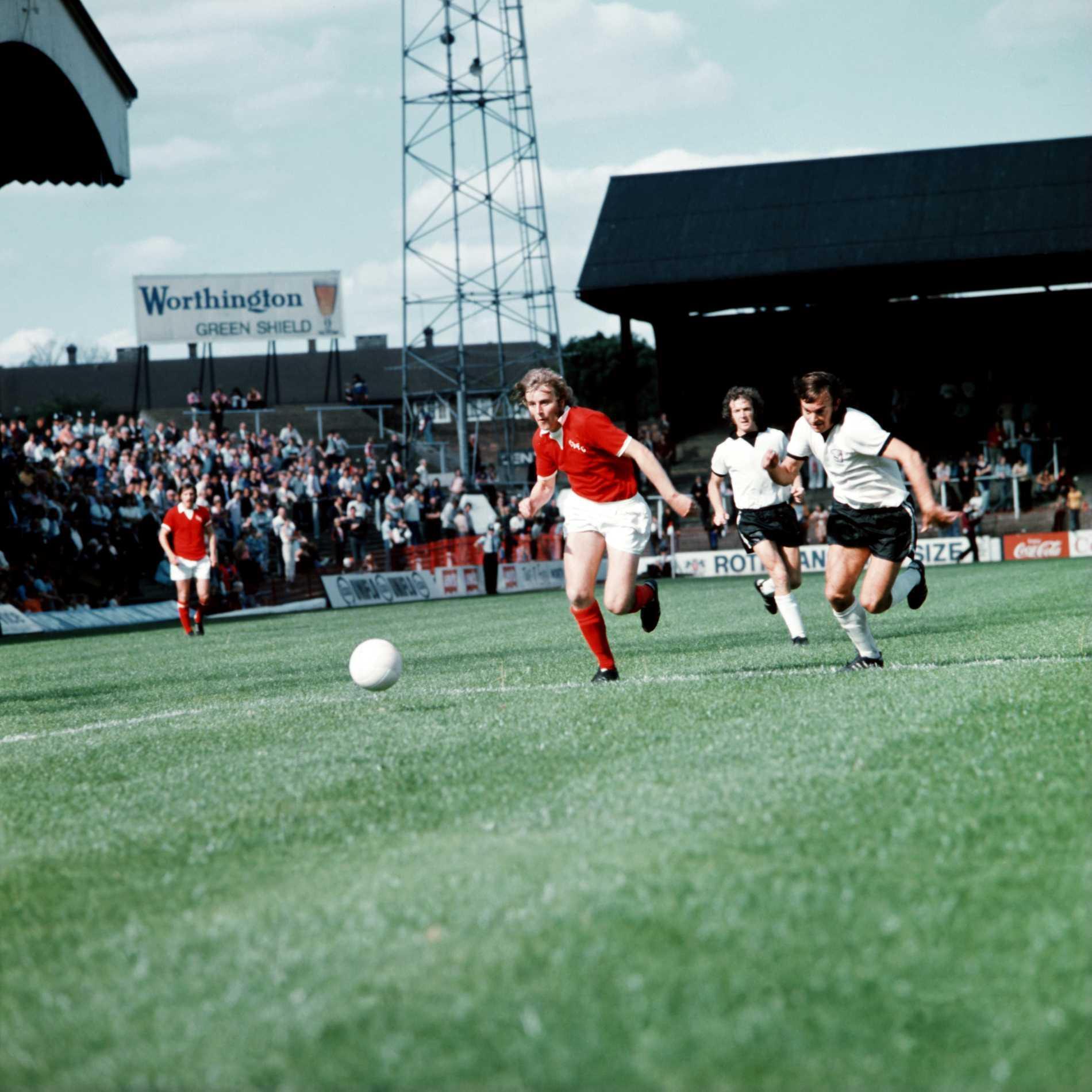
The Addicks finished in third place and sealed promotion on the final day thanks to a 3-1 victory over Preston North End at The Valley.
1976: Killer tops scoring charts
An eventful return to the Second Division saw Charlton finish ninth and reach the fifth round of the FA Cup, with the run coming to an end against Wolverhampton Wanderers at Molineux in front of 7,000 travelling supporters.
Derek Hales finished as the league’s top scorer with 28 goals and the striker added a further three to his tally in cup competitions, bringing his total for the 1975/76 season to 31 goals in 50 appearances.
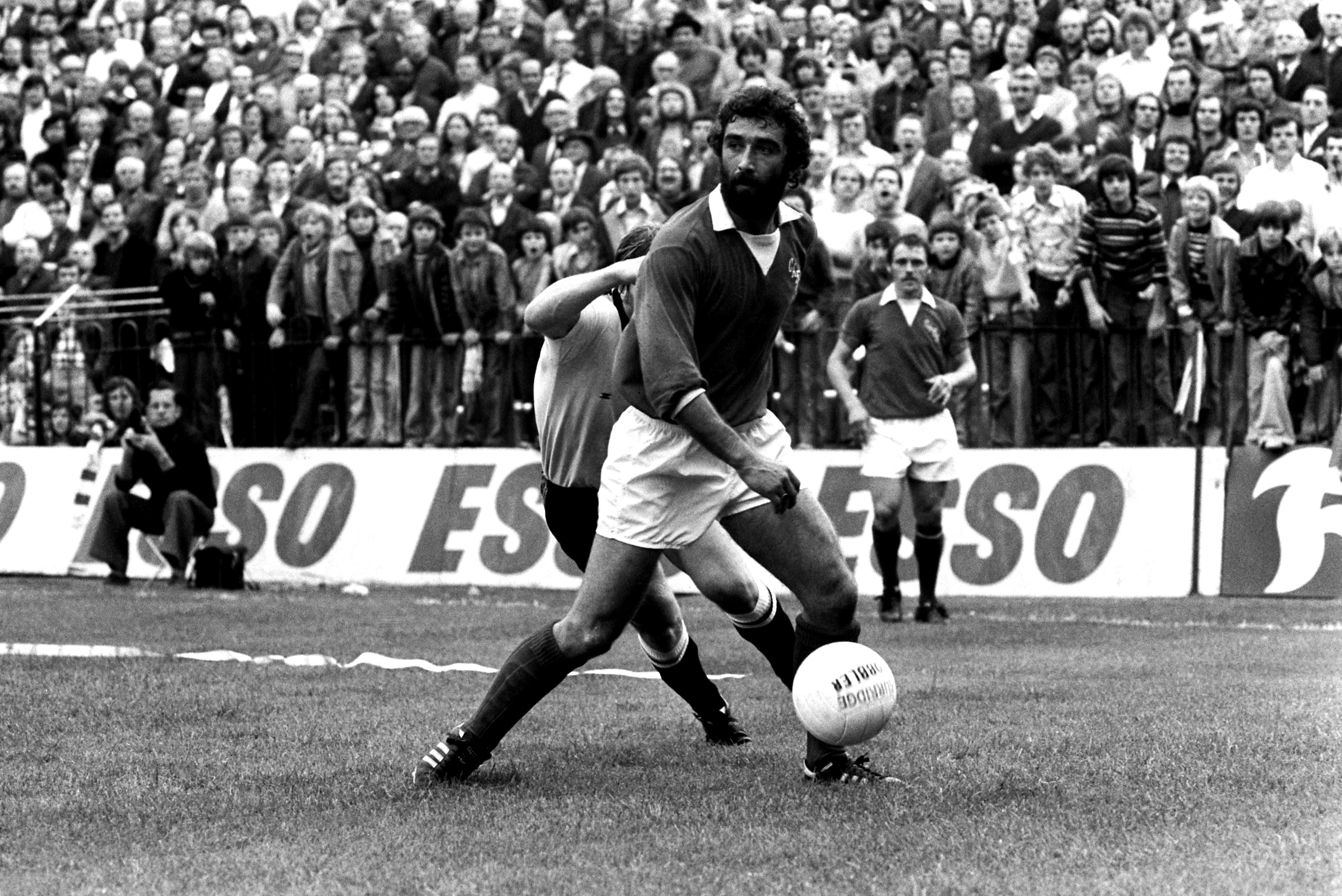
The following season, Hales’ goalscoring record was even more impressive, scoring 18 goals in 19 games, including a hat-trick against Hull City at The Valley with the second of his three goals winning ITV’s goal of the season, before he departed to join Derby County in the top flight.
1980: Relegation back to the third tier
Charlton suffered their fourth relegation following five years in the Second Division, dropping into the third tier after finishing bottom in 1980/81.
Andy Nelson had been relieved of his duties as Manager in March 1980 and was replaced by former player Mike Bailey, who could not save his side from the drop, but was tasked with bouncing straight back 12 months later.
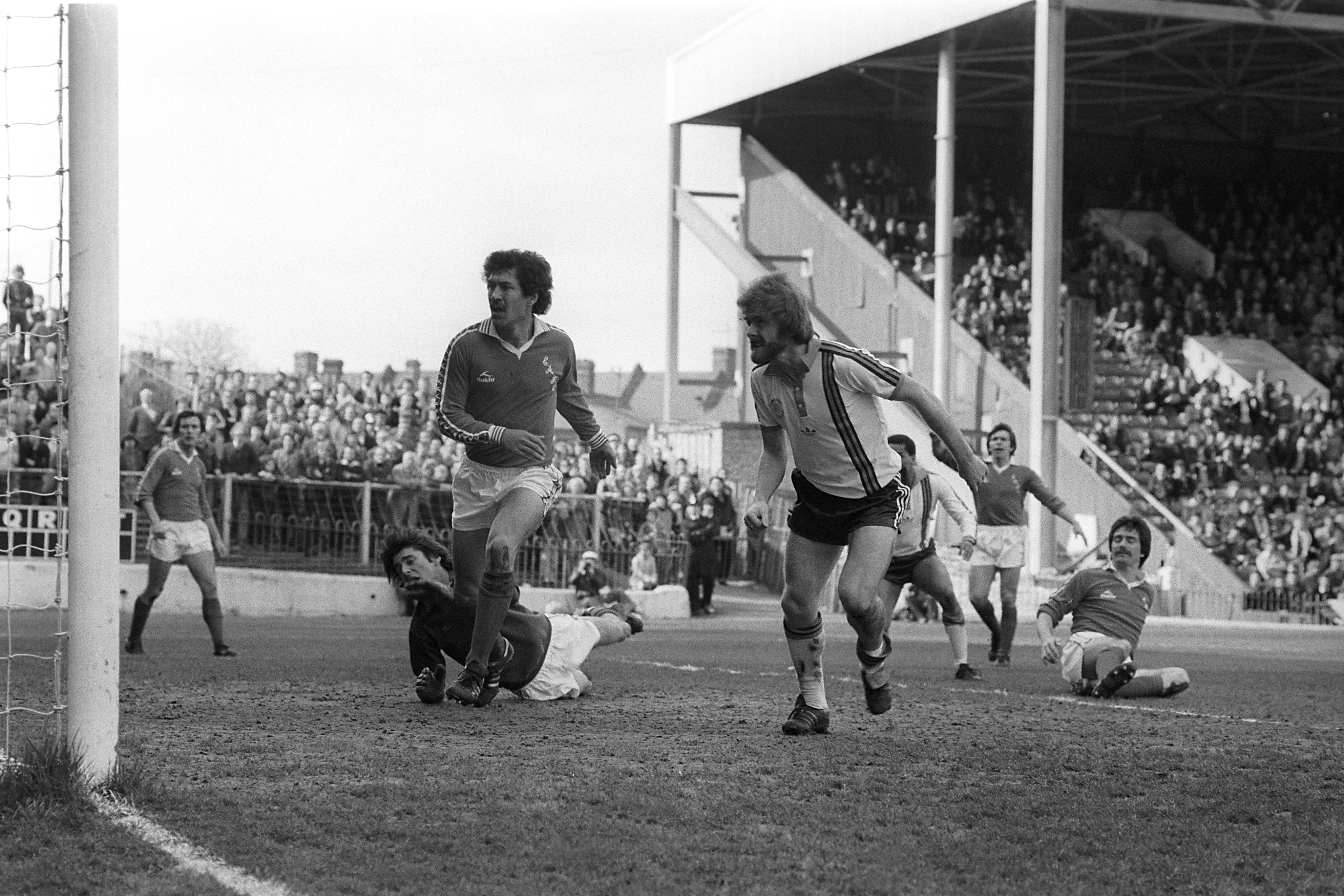
1981: Promoted to Second Division after one season back in the third tier
Mike Bailey led Charlton back to the Second Division after just one season in the third tier, finishing in third place, just two points behind champions Rotherham United.
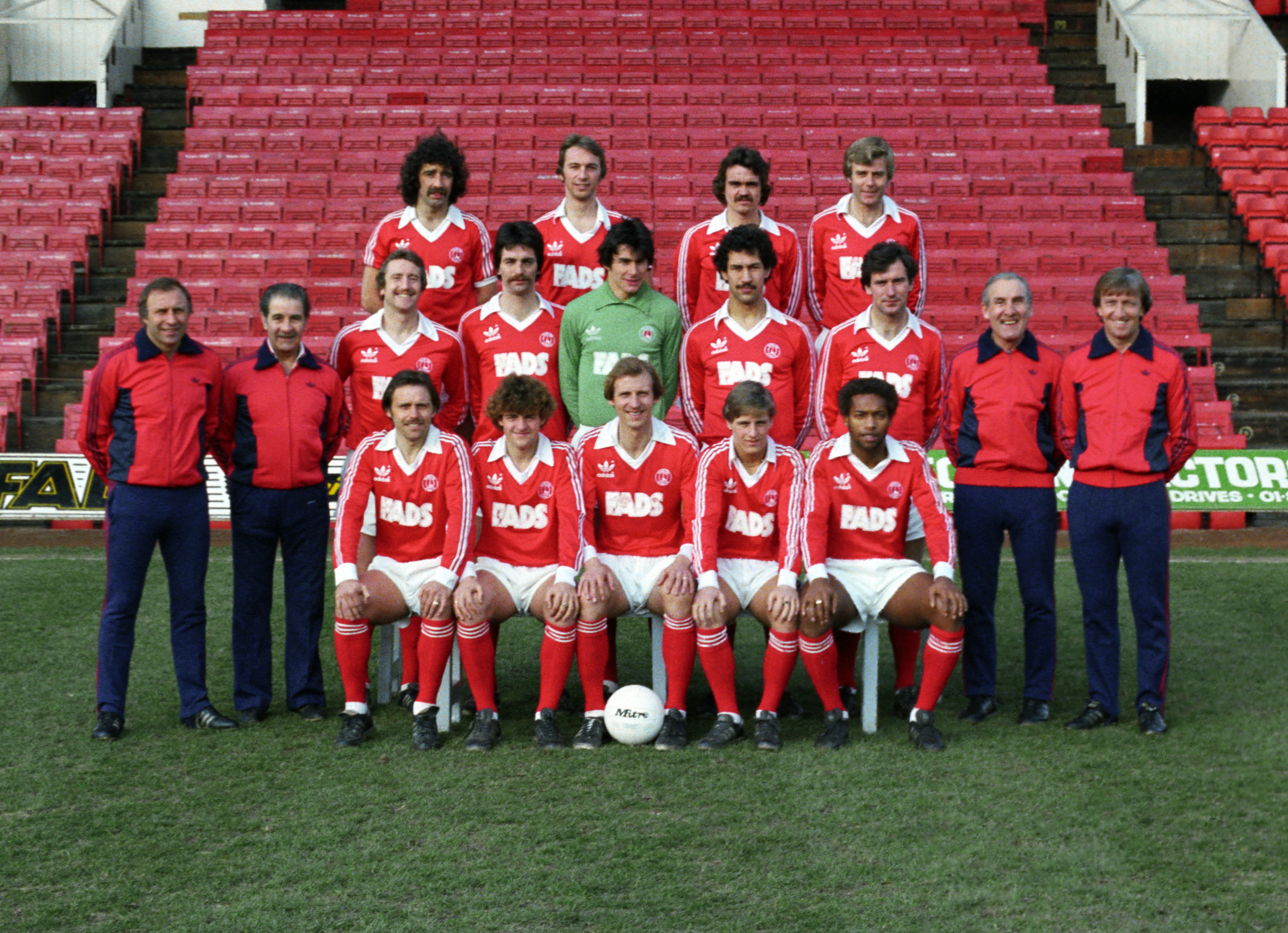
Teenage forward Paul Walsh was the club’s leading marksman, netting 18 goals, while promotion was eventually secured with a 2-1 victory over Carlisle United at Brunton Park on April 25th, 1981.
1982: Allan Simonsen arrives and Lennie Lawrence named Manager
The Gliksten family’s 50-year ownership of Charlton came to an end when Mark Hulyer bought the club, becoming the youngest chairman in the Football League, although Michael Gliksten retained the freehold to The Valley.
In October 1982, Charlton made a signing that shook the world of football, bringing former European Footballer of the Year Allan Simonsen to The Valley from Barcelona for £300,000.
Simonsen would only make 17 appearances, scoring nine goals before being released on a free transfer, with financial difficulties beginning to pile up in SE7 and Hulyer falling behind on his rental agreement.
Meanwhile, Reserve Team Manager Lennie Lawrence took over from Ken Craggs as boss in November and he led the Addicks to safety.
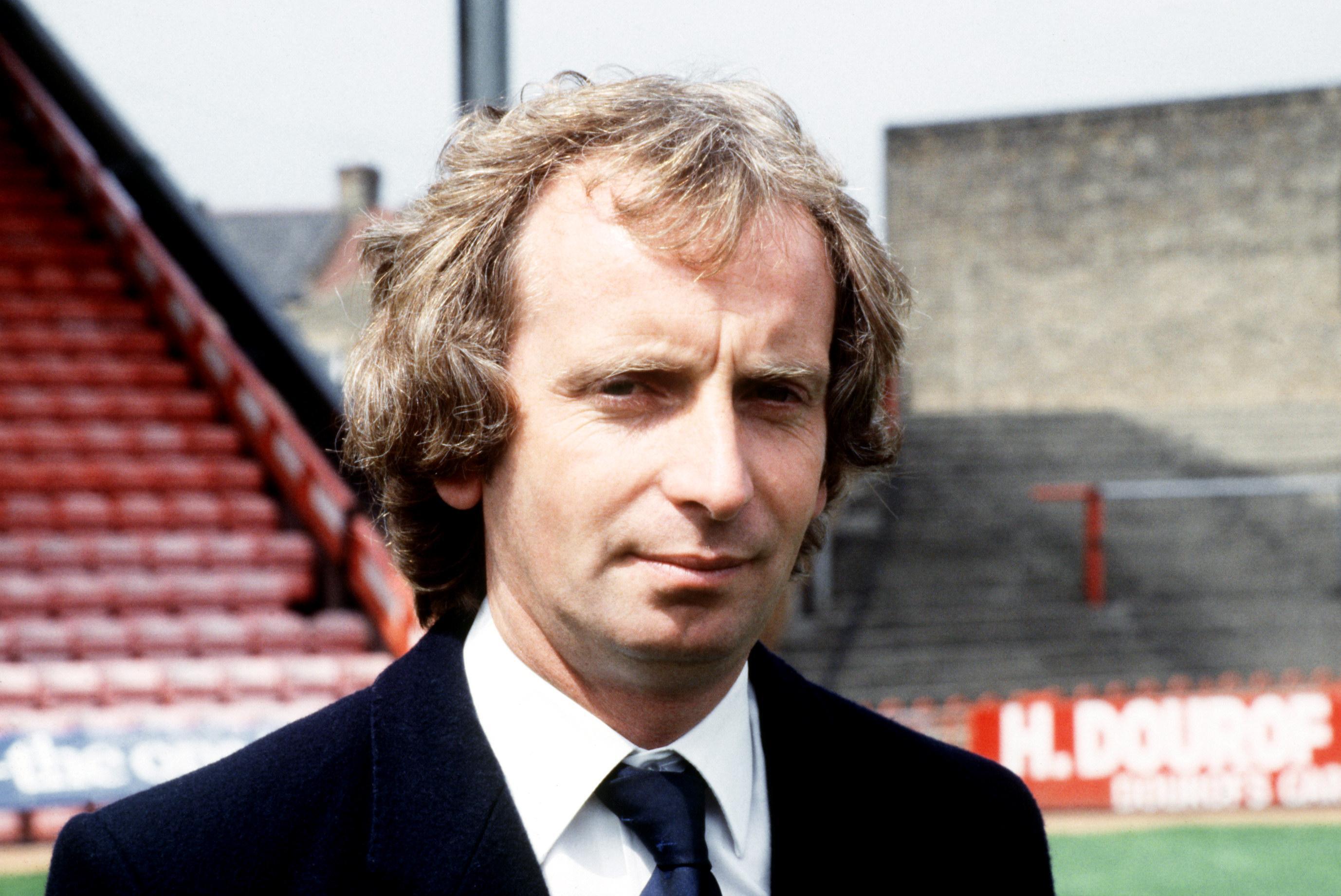
A tense final-day clash against Bolton Wanderers at The Valley saw Charlton score four goals in the last 22 minutes to secure their Second Division status with a 4-1 victory.

